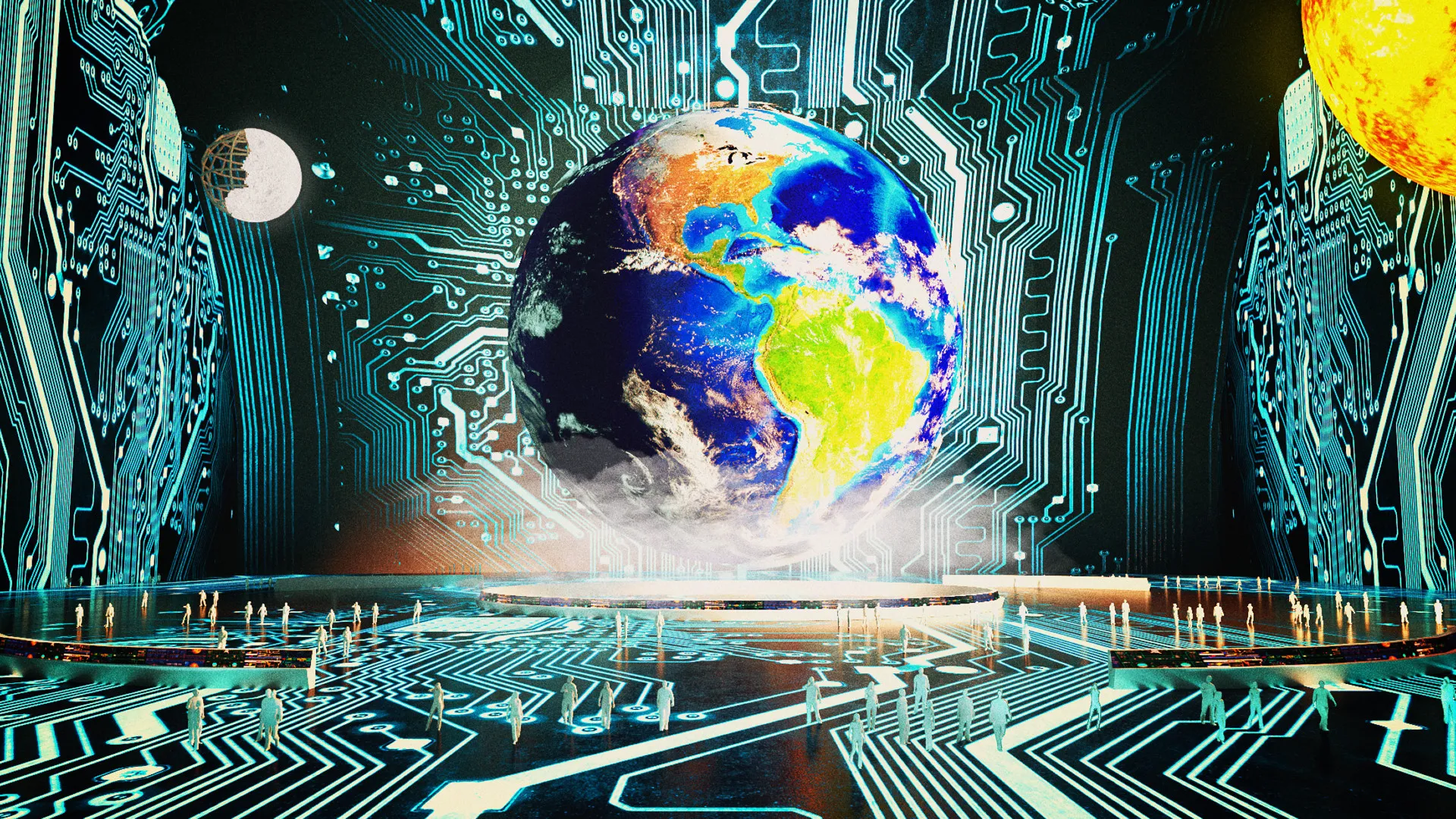The idea that our reality might be a sophisticated computer-generated simulation is deeply intriguing to many experts in the field of science. This thought-provoking concept is known as the simulation hypothesis. This thought-provoking concept is known as the simulation hypothesis.
What is the Simulation Hypothesis?
The simulation hypothesis suggests that we live in a simulated reality. Interestingly, the theory has a lot of similarities to religious beliefs in the concept of a divine creator. It also raises difficult philosophical questions about the nature of consciousness and reality.
This theory has drawn the interest of many high-profile tech leaders, including PayPal co-founder Peter Thiel and astrophysicist Neil deGrasse Tyson. These figures are often interested in the potential for artificial intelligence and virtual reality to create convincing simulations. However, they also acknowledge that the idea cannot be proven either way with current technology.
Bostrom argues that if a civilization advanced enough to run our ancestor simulation has the technological capabilities, it would be possible for them to create higher levels of simulated realities as well. Each simulated level, however, requires less and less computing power than the one before it, so each universe can be smaller and more simplified.
The simulation theory is also related to the concept of eternal inflation, which suggests that our universe is just one bubble in a larger multidimensional space. As the bubble expands, it will eventually pop. When this occurs, it will create another bubble that may contain a simulated version of our reality. It may be a few trillion years before this happens, but scientists hope to continue monitoring the expansion of our universe for signs of this cosmic event.
What is the simulator’s purpose?
Some people take the “we’re a simulation” idea one step further and say that the universe we live in is only a small part of an infinitely larger simulator. This, they argue, would explain things like the fine-tuning of the laws of physics and quantum entanglement. It could also resolve some of the potential conflicts with traditional religious notions of an ultimate divine reality.
This idea is popularized in movies and video games such as the Keanu Reeves sci-fi classic The Matrix. University of Portsmouth scientist Melvin Vopson, for example, uses the analogy in a recent article he published on The Conversation website.
Vopson’s idea is not the first to suggest that our universe might be a simulation, but his reasoning is unique and intriguing. He argues that any species that reaches our level of technological development will eventually develop the ability to create their simulated reality. If they do, this would allow them to create an immortal life for themselves without the moral conundrum of having their kind die.
This is a pretty good argument, but there are several problems with it. For starters, the laws of computation dictate that a simulated universe must always be less complex than the mechanism that simulates it. This means that positing an entire other universe with alien engineers to explain the existence of this one is as flawed an explanation as Ptolemy’s invention of epicycles to make the solar system geocentric.

What is the simulator’s plan?
A designer of a simulation would not design it with features that don’t serve the goals of the simulation. They wouldn’t add granularity to the Planck scale or trillions of dead galaxies that just occupy space, for example. They’d be smart enough to understand the limits of their computer and avoid designing such wasteful features or to repurpose resources and save time in another way.
The simulator would need to have a lot of brains simulated, so it would have to be efficient in its processing power and space. This means it wouldn’t have a skewed metric like a single simulated brain that consumes the same amount of energy as its natural counterpart—that’s just silly. Instead, a simulator would likely create an average of all the brains it simulates in its computer.
But how could a simulator achieve this? This is where simulation enthusiasts need to think it through. It’s important to recognize that a SIM theory is a Cartesian demon, with no evidence elevating it to probability, and a vanishingly small prior. It is only marginally more likely than the notion that alien lizard people run Earth’s governments or any other conspiracy theory of your choice.

What is the simulator’s reality?
For centuries, philosophers and physicists have debated what reality is. Today, there is a theory gaining popularity that our universe may be nothing more than an advanced computer simulation overseen by a powerful, intelligent entity. This theory is known as the simulation hypothesis.
The problem with this argument is that it relies on a fundamentally flawed idea. It assumes that the beings running this simulation have infinite computing power. This is not only unrealistic, but also impossible to prove. It would require proving that the beings running this simulation are not themselves part of a simulation or that they are not simulating our world. This leads to an infinite regress and is not possible.
In addition, it is not clear why this hypothetical intelligent designer would create such a simulation to begin with. It would take a tremendous amount of resources to simulate this complex world, including the existence of the entire universe. And it is hard to see what the purpose of this simulation would be other than to reincarnate a few ancestors.
In addition, this argument relies on some shaky philosophical assumptions. For example, it assumes that simulated people have the same kind of free will that real people have. This is not possible because deterministic free will is a physical impossibility. It also assumes that a simulated world can be just as real as the real one. However, there are many reasons why a simulated world could not be as realistic as ours (including the fact that the laws of physics are different in a simulated world).



